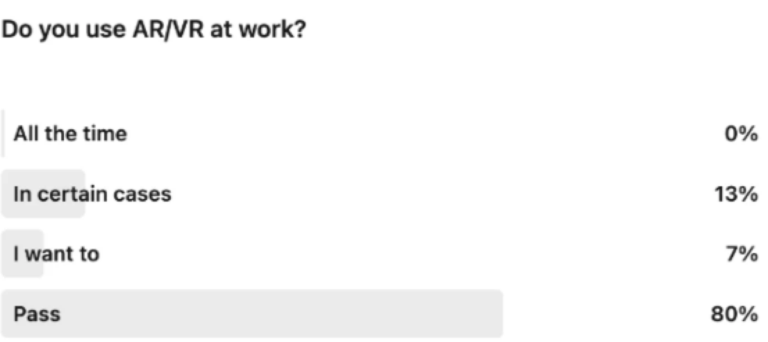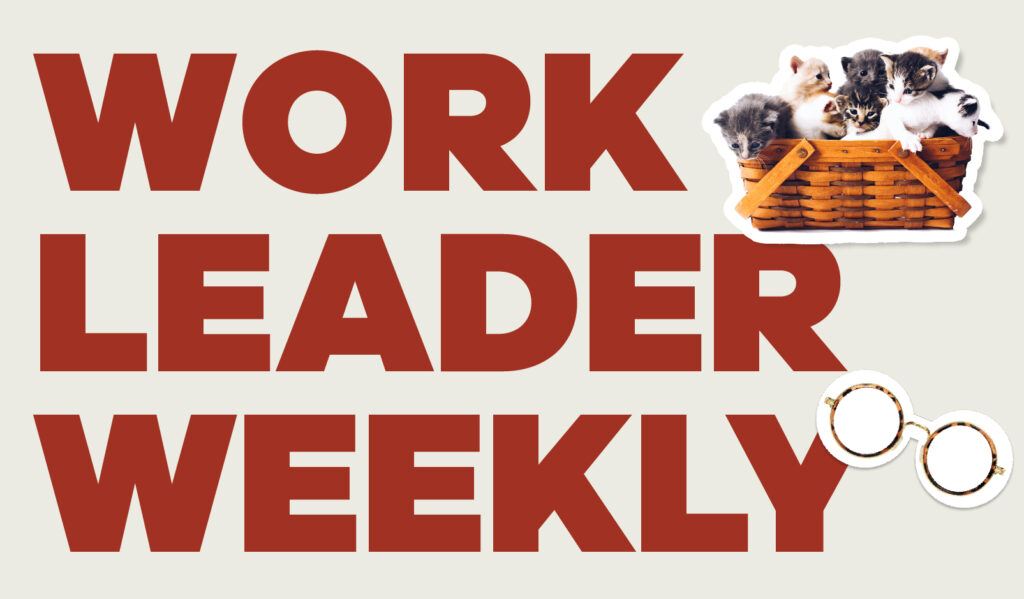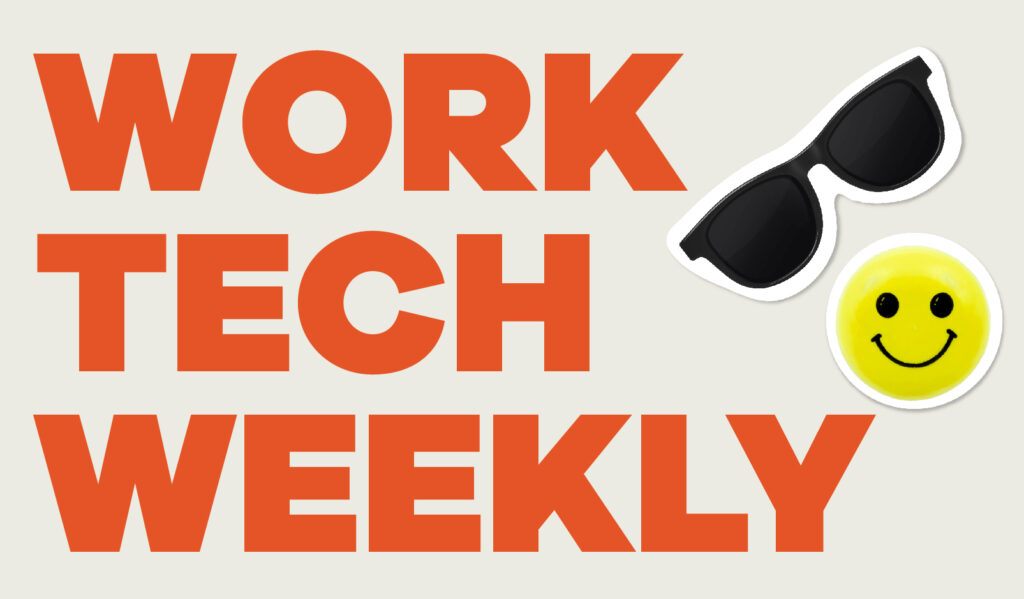Hello.
Happy SHRM Annual Conference week. If you’re not one of the 24,000+ HR professionals, vendors, or partners at the event, join the club. Instead of talking about the big show, we’re covering men being allies for women in the workplace, AI and hiring decisions, and a wildfire plan for the office. But first, why won’t employees just come into the office?
Let’s jump into it.
Pleeeeease come back to the office
Martha Stewart said America will go down the drain if people don’t go back to the office full-time. President Bill Clinton told attendees at SHRM’s annual conference that we need people to go back to work (apparently remote doesn’t count). Google is cracking down on attendance. Salesforce will donate $10 a day to charity for each employee who comes into the office.
What’s in the water? Well, leave it to a VC with zero domain experience but lots of opinions on what’s happening to the workforce to chime in based on anecdotal stories.
“I’ve talked to multiple founders recently who have changed their minds about remote work and are trying to get people back to the office,” Paul Graham, cofounder of Y Combinator, wrote on Twitter. “I doubt things will go all the way back to the way they were before Covid, but it looks like they will go most of the way back”
He surmised that “smart people (were) fooled” into thinking remote work works because it does work, at least initially, until it doesn’t. He joins other VCs — a class of people who routinely work anywhere other than an office and pat themselves on the back for innovation — who think that everyone else should be working at an office every day, because it makes VCs more money.
It’s no fun picking on Graham. On the sliding scale of obnoxious VC know-it-alls, he seems pretty good at staying in his lane. At the same time, it’s just lazy.
There’s a much simpler explanation why organizations think, fairly or not, they are worse off remote or hybrid than they are back in the office: They haven’t done jack shit to adapt to a new normal. They are willing remote work toward failure, whether it’s intentional or not.
Outside of buying a Zoom subscription and offering up some sort of virtual hangouts on occasion, what have these suddenly remote-hesitant organizations done to make things better?
- They complain about the productivity of people hired over the last three years, but have they invested substantially in additional training?
- They decry the lack of connection, but have they done anything intentionally to foster it?
- Have managers changed their approach to management at all? Have employers helped those managers adjust their approach?
- Does anyone realize that undoing seven decades of office culture takes more than a couple of half-hearted attempts at figuring out how to run a remote organization?
With some exceptions, the answer to every one of those questions is no. Most companies are firing up their flux capacitors and going back to 2019, assuming it will make things all better. It’s so dumb.
The answer to this is simple: Most organizations will likely find they need to have a mixture of in-office and remote work, and not because it’s what’s best for them, but because it’s what’s best for employees. I know for me, remote work works. I’m celebrating 14 years doing what I love from wherever I am. For others, the situation isn’t as good.
But organizations can actually try to adapt, or they can complain without trying. I’ve yet to see an organization that has taken significant steps to make remote or hybrid arrangements work and then go straight back to five days a week in the office. If I’m wrong, let me know.

Weekly LinkedIn poll result
Who is ready to wear an Apple Vision Pro or a Meta Quest at work all day? Well there’s not a lot of demand right now, with 80% saying “Pass.” But in certain use cases, I think there are some great arguments for using it.

Quick hits from around the web
What else is happening?
- AI Has Better Things To Do Than Make Hiring Decisions. Let’s unleash the power of AI on automating the terrible things that we must do in talent acquisition instead of the very human things that need our full attention. (ERE)
- Men Think They Are Strong Workplace Allies. Women Disagree. Real talk about how much support women get at work from men — and how we can do better. (Scientific American)
- Is Your Company Prepared for the Effects of Wildfires? The only good thing about the smoke that’s impacting the center of news in the U.S. is that these subjects are getting more attention. (Harvard Business Review)
- Sun, Sea, and Stress? The Pros and Cons of Workcations. Workcations generally aren’t for me, but I like having hard dividing lines at work. (Unleash)
- First, It Was Quiet Quitting. Now, Workers Are Facing Off With Their Bosses. We all wonder what employees are thinking, but when they speak up and tell us what they want, we don’t listen. (The Wall Street Journal)
- Children as Young as 12 Work Legally on Farms, Despite Years of Efforts to Change Law. Child labor laws keep coming up, and if you work in an industry that is often using children, you probably owe it to yourself to stay on top of these developments. (NPR)
- Why New HR Technology Implementations Fail. The biggest reason is companies fail to fully adopt the new technology, but other challenges also continue to frustrate buyers. (SHRM)
- Workers Are Hungry for Guidance on Using AI, New Research Shows. If I can make a pitch to take a balanced approach with some clear ethical or legal boundaries, that’s the first place I would start. (Fast Company)
- Entering Our ChatGPT Era. Generative AI is unlocking use cases faster than researchers can keep up, but a few are trying. (UC San Diego)
- Microsoft Dominates AI Race with Copilots for Everything. Microsoft is putting its multi-billion dollar investment in AI to work on the desktop. (Reworked)
- AI at Work: What HR Needs to Know. A compendium of resources on bias, disabilities, recruitment and more issues with AI in HR. (HR Dive)
Labor law violation allegations come for an exclusive summer camp
The secretive Bohemian Club has a summer camp in Northern California where they meet to discuss, well, something of great importance. They also employ people and, if a complaint by three valets is to be believed, they might not be the greatest place to work.
Three valets who worked for years at the private club’s infamous summer camp at Monte Rio in Sonoma County brought the complaint, seen by SFGATE. The complaint alleges a litany of unlawful labor practices at Bohemian Grove, including “nonstop” 16-hour work days, during which employees were not provided bathroom or lunch breaks, and a failure to pay minimum wage and overtime.
Every summer for 150 years, a 2,700-acre clearing in the ancient redwoods near the Russian River becomes a gathering place for the world’s elite. The Bohemian Club’s summer camp is shrouded in mystery but is rumored to end with a ritual that involves a human effigy and the burning of a giant sacrificial owl.
Sounds interesting but probably not my preference for working 16 hours in a day.

That’s it for this week!
Lance




